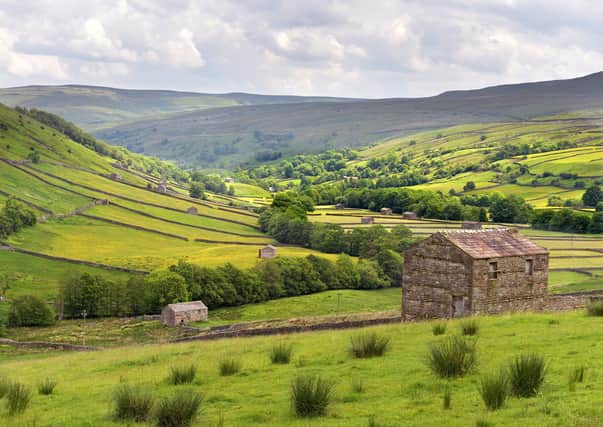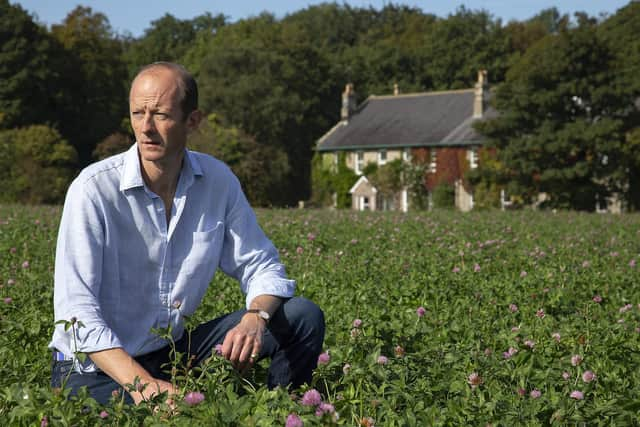Planning reform must support job creation and economic growth in rural areas - Mark Bridgeman


Perhaps in years to come, the very idea of commuting long distances every day, at the expense of family life and so much more, will feel primitive.
The concept of the “city office” is shifting before our eyes. The Royal Bank of Scotland has announced 50,000 workers will remain at home until next year. Other major employers are questioning the need for their expensive rented skyscrapers.
Advertisement
Hide AdAdvertisement
Hide AdMeanwhile estate agents are reporting increased enquiries from urban-dwellers seeking an escape to the countryside, whilst career service Escape the City has reported how the number of jobseekers looking for work in rural locations has doubled.


Rumours of the death of cities are perhaps exaggerated, but it is not difficult to imagine a world where businesses – from start-ups to SMEs to multinationals – shun the city in favour of homeworking and smaller, rural office spaces.
The Prime Minister should not discourage this shift; instead he should facilitate it, and his proposed reforms to the planning system are the perfect place to start.
Farmers want to farm. Of that there is no doubt. But the reality for many is that exploring new revenue streams is a financial necessity, and as many as 60 per cent already have diversified incomes with a broad variety of business interests.
Advertisement
Hide AdAdvertisement
Hide Ad

Time and again we hear of farmers wanting to convert that old dairy parlour, or those old stables, into modern offices only to be held back by a bureaucratic planning system designed to prevent economic growth.
Indeed, it is so hard to navigate that, at great cost, many businesses simply give up trying to find a way to work within its restrictions and abandon development projects altogether.
The problem has become so widespread that Government has been forced to create a disputes mechanism simply to resolve disagreements.
This, combined with the costly engagement of professional advisers to help applicants wade through the mire of detail, is actively deterring businesses from carrying on proposals that would create jobs in the countryside.
Advertisement
Hide AdAdvertisement
Hide AdIn other words, the enormous time lag, upfront cost associated with making a planning application, and the significant risk of an unsuccessful outcome are hindering potential rural economic development.
This cannot be overstated. One planning application for the redevelopment of a site in a market town required £1m in upfront costs for supporting evidence, and was ultimately refused. A planning application for a plant that converts biomass into energy incurred £300,000 in upfront costs and was also refused — to the detriment of the Government’s own “green” agenda.
And this is to say nothing of the time it takes to receive planning permission. One Country Land and Business Association member spent 20 years navigating the system in order to convert listed farm buildings into the kind of commercial office spaces that would encourage entrepreneurs to find a home for their business in the countryside.
The Covid-19 crisis has made the costs and delays associated with the planning system even less acceptable. Now, we desperately need a well-funded, efficient regime designed to encourage economic development in rural areas. The needs of the rural economy should be a higher priority in the National Planning Policy Framework, and there must be greater use of “permission in principle” rules for proposals with demonstrable economic benefit.
Advertisement
Hide AdAdvertisement
Hide AdPubs that have closed due to a lack of viability should be given permitted development rights, allowing the buildings to be used as rural business hubs for entrepreneurs and small business owners without costly delays.
Simplifying the planning system could unlock billions of pounds for the economy at a time when growth is desperately needed. We want to ensure people can live the rural lifestyle so many crave, whilst still succeeding in their chosen career. The only way that can be achieved is with a planning system designed to facilitate job creation and sustainable economic growth in rural areas.
Mark Bridgeman is president of the CLA.
Editor’s note: first and foremost - and rarely have I written down these words with more sincerity - I hope this finds you well.
Almost certainly you are here because you value the quality and the integrity of the journalism produced by The Yorkshire Post’s journalists - almost all of which live alongside you in Yorkshire, spending the wages they earn with Yorkshire businesses - who last year took this title to the industry watchdog’s Most Trusted Newspaper in Britain accolade.
Advertisement
Hide AdAdvertisement
Hide AdAnd that is why I must make an urgent request of you: as advertising revenue declines, your support becomes evermore crucial to the maintenance of the journalistic standards expected of The Yorkshire Post. If you can, safely, please buy a paper or take up a subscription. We want to continue to make you proud of Yorkshire’s National Newspaper but we are going to need your help.
Postal subscription copies can be ordered by calling 0330 4030066 or by emailing [email protected]. Vouchers, to be exchanged at retail sales outlets - our newsagents need you, too - can be subscribed to by contacting subscriptions on 0330 1235950 or by visiting www.localsubsplus.co.uk where you should select The Yorkshire Post from the list of titles available.
If you want to help right now, download our tablet app from the App / Play Stores. Every contribution you make helps to provide this county with the best regional journalism in the country.
Sincerely. Thank you.
James Mitchinson
Editor